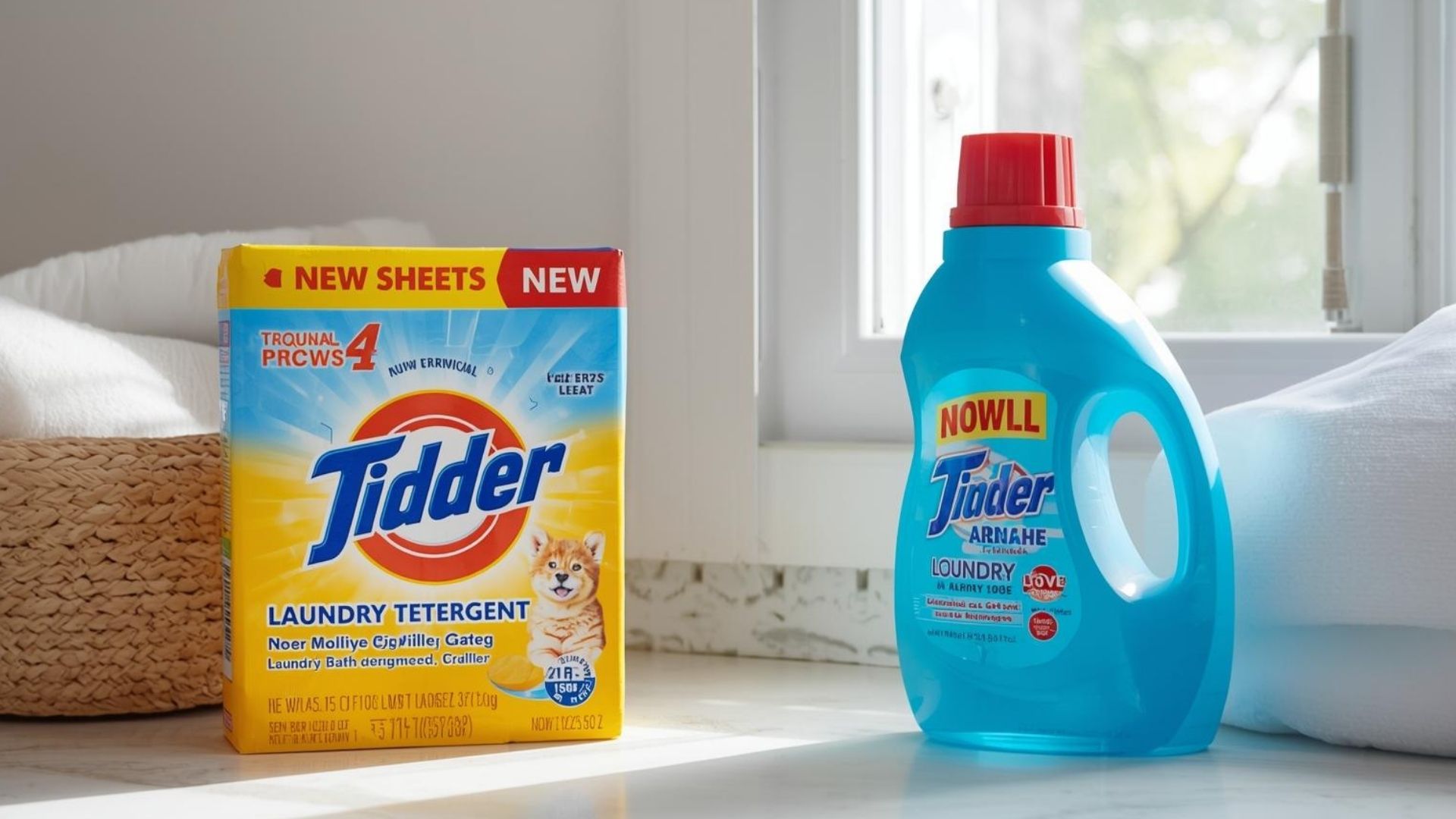Do Laundry Detergent Sheets Work as Well as Liquid?
Laundry is a household chore that most of us can’t escape. For years, liquid detergents have dominated the market, offering reliable cleaning power in familiar plastic jugs. But as environmental concerns grow, alternatives like laundry detergent sheets have emerged, promising a greener, more convenient option. These thin, dissolvable strips claim to deliver the same cleaning results without the waste, water usage, and bulky packaging of traditional detergents. But do they actually work as well as liquid? In this in-depth exploration, we’ll break down how laundry sheets stack up against liquid detergents in terms of performance, cost, convenience, and environmental impact, drawing from expert testing, user experiences, and practical insights.
What Are Laundry Detergent Sheets?
Laundry detergent sheets—sometimes called detergent strips or squares—are a modern twist on traditional laundry products. Unlike liquid detergents or pods, they come as pre-measured, lightweight sheets made of concentrated detergent ingredients bound together by a dissolvable resin or film, often polyvinyl alcohol (PVA). You simply toss one into your washing machine, and it dissolves in water—hot or cold—releasing surfactants, enzymes, and other cleaning agents to tackle dirt and stains.
The appeal is clear: they ditch the heavy plastic bottles and messy pours of liquid detergents. Most brands package them in slim, recyclable cardboard boxes, touting a reduced environmental footprint. They’re marketed as eco-friendly, hypoallergenic, and space-saving, with many claiming to be free of harsh chemicals like parabens, phosphates, and dyes. Popular brands include Earth Breeze, Tru Earth, and Sheets Laundry Club, and they’re gaining traction among sustainability-minded consumers, especially younger generations like Gen Z and millennials.
But while the concept sounds promising, the real question is whether these sheets can clean as effectively as the liquid detergents we’ve relied on for decades. To answer that, we need to look at how they perform, how they compare to other options, and whether they’re worth the switch.
How Do Laundry Sheets Compare to Liquid Detergents?
To understand how laundry sheets measure up, let’s examine their cleaning power alongside liquid detergents and pods. Consumer Reports (CR), a trusted testing organization, evaluated several laundry sheet brands against top-performing liquids and pods. Their methodology involves washing fabric swatches stained with tough substances like blood, body oil, dirt, coffee, and grass in cold water on a normal cycle. This rigorous approach highlights real differences in performance.
Cleaning Performance: The Test Results
Here’s a comparison of top performers across three categories—sheets, liquids, and pods—based on CR’s findings:
| Detergent Type | Brand | Body Oil | Dirt | Hard Water | Overall Score |
|---|---|---|---|---|---|
| Laundry Sheet | Earth Breeze Liquidless Eco Sheets | Moderate | Moderate | Poor | 29 |
| Liquid | Tide Plus Ultra Stain Release | Excellent | Excellent | Excellent | 84 |
| Pod/Pack | Tide Plus Hygienic Clean Heavy Duty | Very Good | Very Good | Very Good | 78 |
- Laundry Sheets: Earth Breeze, the best-performing sheet tested, scored a modest 29 overall. It showed moderate success with dirt and body oil but struggled with tougher stains like coffee and performed poorly in hard water conditions. Other brands, like Tru Earth Eco Strips, fared worse, earning an overall score of just 11—barely better than washing with water alone.
- Liquid Detergents: Tide Plus Ultra Stain Release led the pack with an impressive 84, excelling across multiple stain types, including body oil, dirt, and salad dressing. It’s a powerhouse for heavily soiled loads.
- Pods: Tide Plus Hygienic Clean Heavy Duty scored a solid 78, offering strong cleaning power with the convenience of pre-measured doses.
Laundry sheets as a group lagged significantly behind. CR’s laundry expert, Rich Handel, noted that their performance was “mediocre to lousy,” with even the best sheets falling short of the lowest-performing liquids or pods. Coffee stains, in particular, proved a weak spot for sheets, while liquids like Tide Eco-Box Original handled them with ease.
Why Sheets Struggle
Why do laundry sheets underperform? It comes down to formulation. Liquids and pods can pack a broader range of enzymes and surfactants—key ingredients for breaking down diverse stains—into their formulas. Sheets, constrained by their solid, concentrated form, have less room for these active agents. Plus, their low-sudsing nature, while great for high-efficiency (HE) machines, may limit their ability to penetrate and lift stubborn grime.
Do Laundry Detergent Sheets Actually Work?
The short answer: yes, but not as well as you might hope. For lightly soiled loads—like gym clothes or everyday wear—sheets can get the job done. They dissolve quickly, leave clothes smelling fresh, and work in all machine types, including HE washers. However, when it comes to tough stains or odors, they falter.
Real-World Testing and User Experiences
Beyond lab tests, real-world use sheds light on their effectiveness. Take Diana Kelly Levey, a busy mom who tested Arm & Hammer POWER Sheets. She found they cleaned towels, sheets, and a toddler’s muddy jacket adequately, with a pleasant “fresh linen” scent. However, she noted they’re not ideal for pretreating stains—a task better suited to liquids or stain removers.
On the flip side, a Reddit user shared a less glowing review after a year of using fragrance-free sheets. They noticed clothes felt tacky and developed a strange smell over time, possibly due to starch buildup from incomplete rinsing. Multiple rinses and vinegar soaks didn’t solve the issue, suggesting some sheets may leave residue if not fully dissolved.
Strengths and Weaknesses
- Strengths: Sheets handle routine cleaning well, especially for small-to-medium loads. Their pre-measured design prevents overuse—a common problem with liquids, where many of us pour too much.
- Weaknesses: They’re less effective on heavy stains (e.g., grease, coffee) and odors (e.g., bacon grease or pizza). Cold-water performance is particularly lackluster, which matters since cold washes save energy and reduce microfiber shedding.
For comparison, Wirecutter’s tests of sheets from brands like Earth Breeze and Clean People echoed CR’s findings: they’re “uniformly poor cleaners,” especially in cold water, leaving stains and smells behind.
Do Laundry Sheets Save You Money?
Cost is a big factor when choosing a detergent. Are sheets a budget-friendly option?
Price Breakdown
- Laundry Sheets: Prices vary by brand. Earth Breeze sheets cost about $13-$15 for 30-60 loads, or $0.22-$0.50 per load. Arm & Hammer POWER Sheets, at $14 for 100 small loads (half-sheet dosing), drop to $0.14 per load.
- Liquid Detergents: Kirkland Signature Ultra Clean from Costco costs $39 for 126 loads, or $0.31 per load. Tide Plus Ultra Stain Release is pricier, often $0.40-$0.50 per load.
- Pods: Tide Pods typically range from $0.25-$0.40 per load, depending on pack size.
Sheets can be competitive, especially for smaller loads, but liquids often win on volume deals at big-box stores. Plus, sheets’ consistent dosing eliminates waste, unlike liquids where overdosing is common (CR suggests just 1.5 ounces per load is enough).
Long-Term Savings
For businesses or bulk buyers, sheets offer hidden savings. Their lightweight nature cuts shipping costs, and compact packaging reduces storage needs. However, if you need multiple sheets for heavily soiled loads, costs can climb, negating the per-load advantage.
Environmental Impact: Are Sheets Really Greener?
Laundry sheets are marketed as an eco-friendly choice, but how sustainable are they?
Pros
- Reduced Packaging: Cardboard boxes beat plastic jugs in recyclability. The UN reports 430 million tons of plastic are produced yearly, a third of it single-use, so ditching bottles helps.
- Less Weight: Concentrated and waterless, sheets require less energy to transport than liquid-filled jugs.
- Biodegradable Claims: Many brands use plant-based ingredients, avoiding harsh chemicals.
Cons
- PVA Concerns: Sheets rely on polyvinyl alcohol (PVA) to hold their shape. While deemed safe by the EPA, PVA may not biodegrade fully, releasing microplastics into wastewater. Studies suggest it harms aquatic life and resists treatment processes.
- Manufacturing Footprint: Some sheets are made in China, racking up emissions during long-distance shipping. Liquids like Dirty Labs, made in the USA, may have a smaller transport impact.
- Water Usage: Though “liquidless,” sheets still use water in production, muddying their sustainability edge.
Liquids like Tide Eco-Box (60% less plastic) or powders like Tide Ultra Oxi (cardboard boxes) offer greener alternatives without sacrificing performance.
Should You Try Laundry Detergent Sheets?
So, are sheets worth it? It depends on your priorities.
When Sheets Make Sense
- Eco-Conscious Living: If sustainability tops your list and your laundry is lightly soiled, sheets are a solid choice. Pair them with liquids for tougher jobs.
- Convenience: Travelers, students, or city dwellers hauling laundry to laundromats will love their portability and mess-free design.
- Space Constraints: Slim boxes stack neatly, perfect for small homes.
When to Stick with Liquid
- Heavy Duty Cleaning: For greasy stains, odors, or large families, liquids like Tide outperform sheets every time.
- Sensitive Skin: Sheets with SLS or fragrances can irritate; opt for hypoallergenic liquids like Sensitive Home instead.
- Budget: Bulk liquid deals often beat sheets on cost per load.
Hybrid Approach
Many users blend both: sheets for daily loads, liquids for deep cleans. This balances eco-friendliness with effectiveness.
Conclusion: Sheets vs. Liquid—Who Wins?
Laundry detergent sheets offer undeniable perks—convenience, portability, and a smaller packaging footprint. They’re a step toward sustainability, appealing to those eager to cut plastic waste and simplify their routine. But when it comes to raw cleaning power, they fall short of liquid detergents. Tests and user feedback confirm that sheets struggle with tough stains, odors, and cold-water washes, making them less versatile than their liquid counterparts.
If you’re an eco-warrior with light laundry needs, sheets could be your go-to. For everyone else—especially those battling ketchup stains or sweaty gym gear—liquid remains king. The choice boils down to what you value most: a greener planet or spotless clothes. For now, laundry sheets are a promising idea that hasn’t fully caught up to the tried-and-true performance of liquid detergents.
Please share this Do Laundry Detergent Sheets Work as Well as Liquid? with your friends and do a comment below about your feedback.
We will meet you on next article.
Until you can read, Average Cost to Heat a Home with Propane by Sq. Ft., Climate






